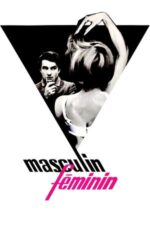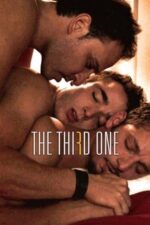More Than Just a Triangle: Exploring the Complexities of the Ménage à Trois on Film
Okay, let’s talk about something fascinating – the cinematic exploration of the ménage à trois. Now, before you conjure up images of purely titillating scenarios (and some films certainly lean that way!), I want to emphasize that this isn't just about a three-person romantic entanglement. It’s a potent narrative device, a visual shorthand for exploring power dynamics, societal pressures, and the messy realities of human connection. Think of it as a cinematic pressure cooker – you introduce three elements, and suddenly, all sorts of interesting things start to bubble up.
The concept itself is ancient, appearing in literature and art throughout history. But cinema has given us a particularly compelling lens through which to examine its complexities. It's rarely just about the romance; it’s about what that entanglement reveals about the characters involved and the world they inhabit.
Take "Cold Showers," for example. The introduction of Clement into Mickael and Vanessa’s relationship isn’t simply a plot twist; it’s a catalyst. It exposes vulnerabilities, highlights class differences (Clement's wealth versus their struggles), and forces everyone to confront uncomfortable truths about loyalty and desire. It's not just about the relationship itself, but what that relationship says about Mickael’s ambition and his willingness to compromise his values for a better life. It echoes a similar theme we see in "Cherry, Harry & Raquel!" where the entanglement between Harry, Raquel, and Cherry isn't driven by love, but by manipulation and survival within a corrupt system. The added layer of Uschi Digard’s character just amplifies the sense of moral ambiguity and chaotic desire.
Then you have films like "Three of Hearts," which uses the ménage à trois as a vehicle for revenge and emotional exploration. It's less about the physical act itself, and more about the psychological damage inflicted by betrayal and the desperate attempts to inflict pain in return. It’s a dark mirror reflecting our own desires for retribution – something I think we can all relate to on some level, even if it's just in fleeting moments of frustration!
And let's not forget the Emanuelle films! While often associated with explicit content (and they certainly don't shy away from that!), they also use the dynamic to explore themes of cultural clash and female agency. "Emanuelle Around the World," for instance, uses a brief encounter as part of a larger narrative about journalistic integrity and exposing exploitation – it’s a fascinating juxtaposition.
Ultimately, the ménage à trois in film isn't just about three people; it's about the intricate web of emotions, motivations, and consequences that arise when boundaries blur and desires collide. It allows filmmakers to delve into uncomfortable truths about human nature and challenge our assumptions about love, loyalty, and morality. So next time you see this dynamic on screen, look beyond the surface – there’s often a much richer story waiting to be uncovered.
What do you think? Have you seen any films that particularly explore this theme in an interesting way? I'd love to hear your thoughts!







































